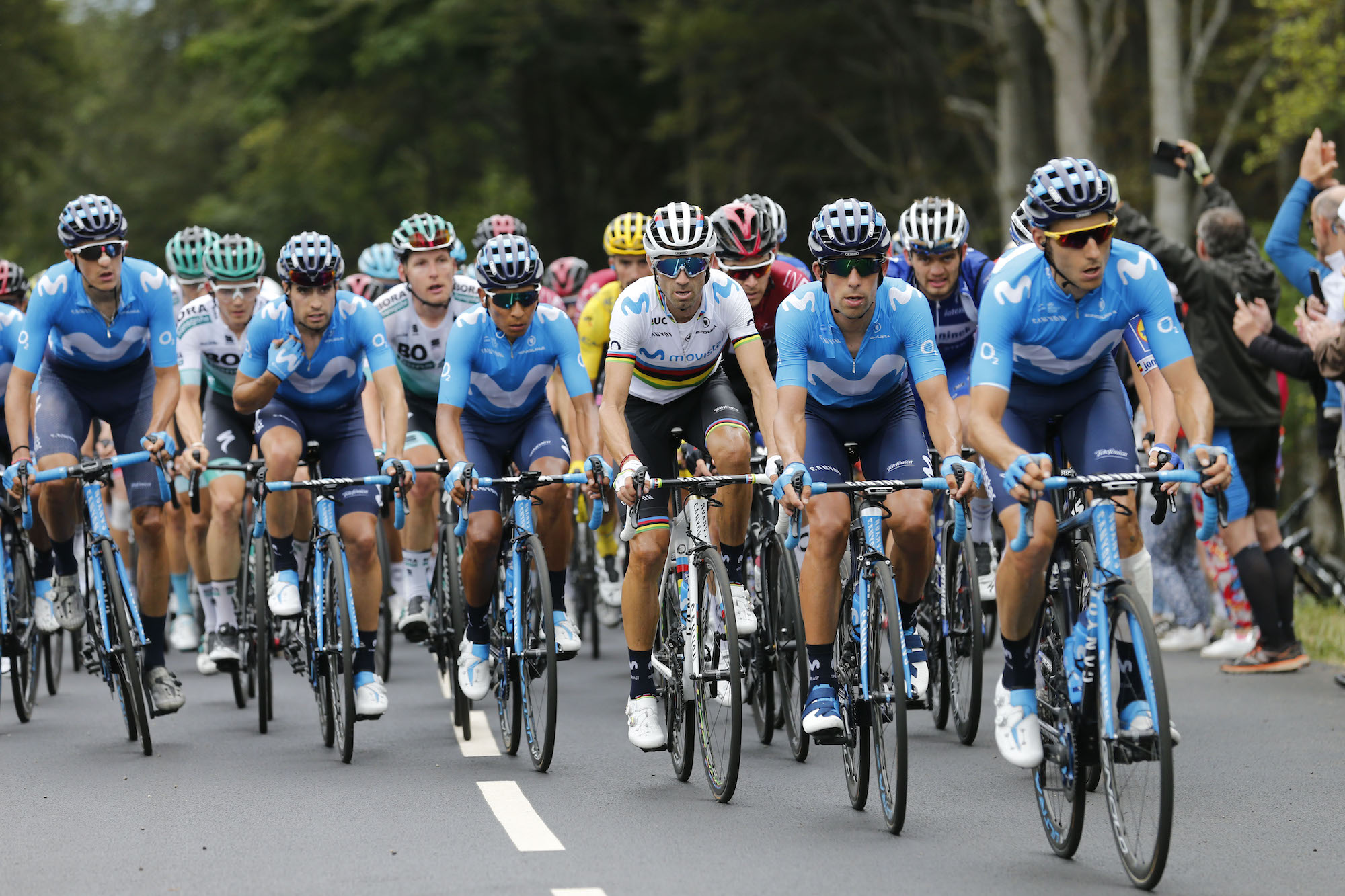Vuelta a España 2019 will be a 'duel between Movistar, Jumbo-Visma and Astana,' says organiser
With some of the biggest Grand Tour stars missing, the race is wide open


Expect a fight between Movistar, Jumbo-Visma and Astana for the 2019 Vuelta a España title, says the race organiser ahead of the tour starting on Saturday (August 24).
All three teams are bringing heavy-hitters to fight for the race overall, but Vuelta director Javier Guillén says he will miss Chris Froome (Team Ineos) and Simon Yates (Mitchelton-Scott), the last two Vuelta champions.
"The participation is extraordinary," Guillen told Spanish newspaper Marca.
"There can be an interesting squad duel between Movistar, Jumbo-Visma and Astana, since they come with their best cyclists.
"No one can say who the winner will be. And we will have the incentive that Latin America could sweep all three Grand Tours after the victories of Ecuadorian Richard Carapaz in the Giro d'Italia and the Colombian Egan Bernal in the Tour de France."
>>> Jakob Fuglsang extends contract with Astana
Yates raced for the Giro overall this spring and then helped his brother in the Tour. Doing so, he took two stages in the Tour but is skipping the third Grand Tour of the year despite being the defending champion.
The latest race content, interviews, features, reviews and expert buying guides, direct to your inbox!
Froome suffered a shocking crash at the Critérium du Dauphiné and the resulting leg injury forced him out of the Tour and sidelined him for the remainder of 2019. Guillén admitted that he would have liked to have Froome's team-mate Ivan Sosa race after he just won the Vuelta a Burgos, but Sosa has not been included in the Ineos squad.
Instead, interest turns to three big teams. Movistar brings Carapaz, who just placed third overall in Burgos, Nairo Quintana, Alejandro Valverde, and Marc Soler. Jumbo-Visma leads with Primož Roglič and Steven Kruijswijk, third in the Giro and the Tour respectively. And Astana counts on Jakob Fuglsang and Miguel Ángel López.
A mix of climbing and time trialling will be needed to win the overall in Madrid on September 15. The race includes a team time trial on day one and an individual one of 36.2km in Pau, France. Then the mountains, with Cortals d'Encamp, Los Machucos, Acebo, and La Cubilla causing the most fear. Of the eight uphill finishes, five are new locations.
"The idea is always to keep interest at a high until the last day and that the Vuelta is a means to showcase new locations," Guillén said
"I expect two scripts: that of the 21 stages that decide the winner in Gredos, the last Saturday before Madrid, and that of interest in each stage on a daily basis."
Most say the Vuelta could be wrapped up on the Monday to La Cubilla, stage 16 ahead of the second rest day on Tuesday. Guillén, however, said that the Gredos stage was "designed so that even a general classification upset can occur."
>>> Here’s who is going to win the Vuelta a España 2019, according to the bookies
The Vuelta a España celebrates 10 years of its red leader's jersey this year.
Guillén, proud of the race now in its 74th year, said,"the Vuelta is original, unpredictable, since it is difficult to control, and brings fireworks."
Gregor Brown is an experienced cycling journalist, based in Florence, Italy. He has covered races all over the world for over a decade - following the Giro, Tour de France, and every major race since 2006. His love of cycling began with freestyle and BMX, before the 1998 Tour de France led him to a deep appreciation of the road racing season.
